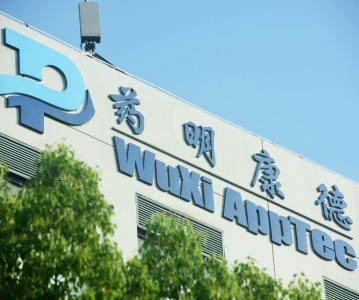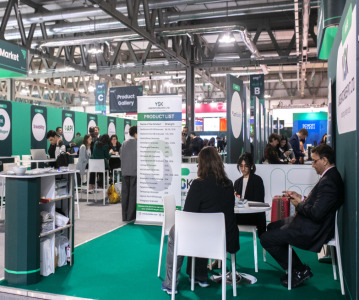Regeneron and Sanofi Report Positive Top-Line Results from Nine Phase III Trials of Alirocumab

Regeneron Pharmaceuticals, Inc. and Sanofi have announced that nine new Phase III ODYSSEY trials of alirocumab in people with hypercholesterolemia met their primary efficacy endpoint of a greater percent reduction from baseline in low-density lipoprotein cholesterol (LDL-C) at 24 weeks compared to placebo or active comparator. Alirocumab is an investigational monoclonal antibody targeting PCSK9 (proprotein convertase subtilisin/kexin type 9).
In the nine ODYSSEY trials, the mean percent reduction in LDL-C from baseline at 24 weeks in alirocumab-treated patients was consistent with results seen in previous alirocumab trials. The nine trials included ODYSSEY LONG TERM, FH I, FH II, HIGH FH, COMBO I, COMBO II, OPTIONS I, OPTIONS II and ALTERNATIVE. All patients received alirocumab in addition to standard-of-care lipid-lowering therapy, with the exception of some patients in ODYSSEY ALTERNATIVE.
The 2341-patient ongoing ODYSSEY LONG TERM trial evaluated the long-term safety and efficacy of alirocumab compared to placebo. Both treatment groups received statins and some patients also received additional lipid-lowering therapies. The trial met its primary efficacy endpoint at 24 weeks. A pre-specified interim safety analysis was performed when all patients reached one year and approximately 25% of patients reached 18 months of treatment. A lower rate of adjudicated major cardiovascular events (cardiac death, myocardial infarction, stroke, and unstable angina requiring hospitalization) was observed in the alirocumab arm compared to placebo in a post-hoc analysis (p-value of less than 0.05). The potential of alirocumab to demonstrate cardiovascular benefit is being prospectively assessed in an ongoing 18,000-patient ODYSSEY OUTCOMES trial.
Alirocumab was generally well tolerated in the 9 ODYSSEY trials. The most common adverse events were nasopharyngitis and upper respiratory tract infections, which were generally balanced between treatment groups. Injection site reactions occurred more often in the alirocumab group compared to placebo. Serious adverse events and deaths were generally balanced between treatment groups as were other key adverse events including musculoskeletal, neurocognitive and liver-related events.
"Clinical data to date show consistent, positive results in LDL-C lowering, with an encouraging safety and tolerability profile across all Phase III alirocumab trials that we have reported," said George D. Yancopoulos, MD, PhD, Chief Scientific Officer of Regeneron and President of Regeneron Laboratories. "Importantly, in the trials that used an individualized approach with 75 mg and 150 mg doses, the majority of patients reached their LDL-C goal while remaining on a 75 mg dose. This dosing approach was designed to provide physicians and patients with the flexibility to tailor therapy to patients' lipid-lowering needs."
Related News
-
News WuXi to sell CGT manufacturing unit to US-based Altaris LLC
At the tail end of 2024, Chinese-based CDMO WuXi AppTec announced the signing of their deal with private equity firm Altaris LLC, confirming the sale of WuXi Advanced Therapies, the cell and gene therapy manufacturing arm of WuXi AppTec. -
News Women in Pharma: Our hopes for 2025 and beyond
Our last instalment for 2024 of the Women in Pharma series brings you messages direct from the Informa Markets CPHI team as they discuss the advice and insights they have carried throughout their roles working at CPHI, and what they hope to see for the... -
News CPHI Milan Wrap-Up Report: Conference Highlights
Discover the emerging and trending topics of the pharmaceutical industry with our CPHI Milan Conference Highlights, with exclusive insight from pharmaceutical leaders and experts! -
News BIOSECURE Act not included in key defense spending bill for 2025
On December 7, 2024, the Biden administration revealed the 2025 National Defense Authorization Act, an annual defense bill specifying the budget and expenditures of the US Department of Defense. The controversial BIOSECURE Act was notably missing from ... -
News Lessons from CPHI Milan 2024: Sunny Intervals for Pharma Manufacturing?
As the 2024 CPHI conference wrapped up in Milan, we caught up with L.E.K. Consulting – a global strategy consulting firm with deep expertise in pharma manufacturing – to discuss evolving market perspectives and business outlook. -
News Trump 2.0: What does the US election result mean for the healthcare industry?
After Trump won the Presidential election in the US in early November, we take a look at some of the implications a new Trump administration could have on the health and pharmaceutical industry, and on US patients. -
News Women in Pharma: Reflections from Behind the Scenes
In this instalment of our monthly series, the team that brings you the Women in Pharma series each month sits down for a heart-to-heart on what the series means to them, and how they hope to continue their work in the future. -
News Scaling the Industry: CPHI Scale-Up Market interview with YSK Laboratories
For the first time, CPHI Milan hosted the CPHI Start-Up Market, expanding support for emerging and small-sized enterprises in their transition to the next level of growth. In this interview, we spoke with Yuvansh Khokhani, Managing Director of YSK Labo...
Position your company at the heart of the global Pharma industry with a CPHI Online membership
-
Your products and solutions visible to thousands of visitors within the largest Pharma marketplace
-
Generate high-quality, engaged leads for your business, all year round
-
Promote your business as the industry’s thought-leader by hosting your reports, brochures and videos within your profile
-
Your company’s profile boosted at all participating CPHI events
-
An easy-to-use platform with a detailed dashboard showing your leads and performance

.png)





